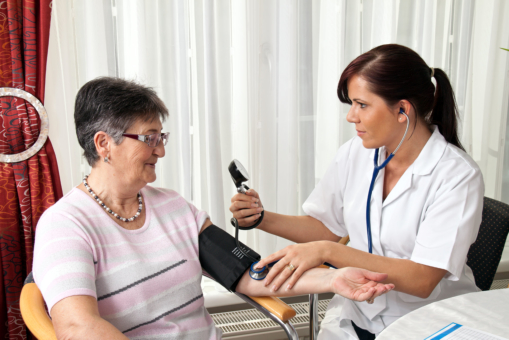
You may have seen doctors and nurses mutter and yell about vital signs in medical dramas. Even a person with only basic healthcare experience can have a vague idea of what this term means. But, when you are studying for a healthcare career in Dolton, Illinois, vital signs will be your daily staple.
What exactly are vital signs?
These are the measurements of the body’s basic functions that indicate life. They are useful in detecting medical problems and determining the state of health of a person. A layman without training can easily measure some of the vital signs, but those in a practical nursing program in Illinois can understand how valuable they really are in the field.
Which body functions count as vital signs and how are they measured?
The four main vital signs routinely measured by healthcare professionals are:
- Body Temperature
This is the measure of the heat naturally produced by the body. It can vary depending on age, food and fluid consumption, level of activity, and time of day. Health experts agree that the normal range is from 97.8 degrees F (36.5 degrees C) to 99 degrees F (37.2 degrees C). A thermometer is an essential tool for measuring one’s body temperature. - Pulse rate
This is the number of times the heart beats in a minute. Measuring the pulse also indicates the regularity of the heartbeat and the strength of the pulse. The normal rate is between 60 to 100 bpm. It can be measured by simply checking the artery in the wrist, though special equipment like pulse oxymeters are also used, as you can see when you undergo healthcare training. - Respiration rate
This is the number of breaths taken in a minute. Elevated respiration indicates distress or medical conditions. At rest, the normal respiration rate for an adult ranges from 12 to 16 breaths per minute. - Blood pressure
This is the force of the blood moving through the arteries as the heart contracts and relaxes. Normal blood pressure is 120/80, and any change in this measurement may indicate a health condition.
Adonis College of Nursing offers more helpful information. Stay tuned!



